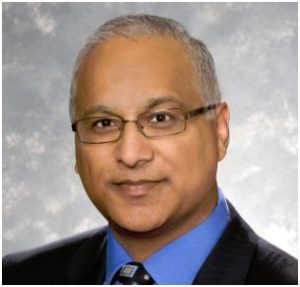 Northrop Grumman Talks Genomics
Northrop Grumman Talks Genomics
By Sam Shekar, Chief Medical Officer, Northrop Grumman
Visit Northrop Grumman at HIMSS in booth #455
There has been tremendous progress in our knowledge of genetics over the last two decades. As we look to the future, the next major challenge is how does that information get utilized efficiently and effectively in healthcare settings? How do we take that information and have it serve as knowledge that can then be applied in daily healthcare?
The ability to do multivariate data integration and analytics is critical to show and demonstrate the impact of genetics in healthcare. That conversion will need IT integration systems to help ensure that information is harvested, applied and utilized appropriately so it can advance healthcare and health outcomes. That translation from information to knowledge is one that we at Northrop Grumman are working to bring to this field and use to help advance knowledge in healthcare.
Northrop Grumman sees itself as a value-added facilitator between those who produce and those who would use genetic information, working to provide IT services and tools that will allow genetic information to be used most productively and efficiently in healthcare settings. To that end, we have been working on a number of genomic and proteomic projects in partnership with universities and other companies that apply IT expertise to enable genetic information to be integrated, analyzed and visualized for clinical purposes.
We are focused on providing a strong systems-integrator experience to enable translation of genetic information into healthcare knowledge. As such, we are establishing academic partnerships for pilot projects with some institutions around the country, developing white papers for potential use in the military and civilian health space, and exploring numerous business opportunities. We have also joined the Institute of Medicine’s Roundtable on Translating Genomic-Based Research for Health, which allows us to connect with key players in the academic world who are focused on personalized medicine.
The routine use of personalized medicine in personal care also entails the robust integration, analysis and secure transmittal of massive amounts of genetic data across multiple entities in the healthcare system. With expertise in data integration, analytics, biosecurity and visualizations, Northrop Grumman creates value by providing the critical IT infrastructure and support to help grow and establish this field.
Cyber security and the security of personally identifiable information are important as genetic information is increasingly used and transferred between systems. We are therefore making aggressive technology investments in identity management, cloud security, data security and other relevant areas.
This growing focus in genetics is one of the ways that Northrop Grumman is supporting the health business. Genomics and personalized medicine are aspects of some of the core capabilities to be showcased at the upcoming 2014 Healthcare Information and Management Systems Society (HIMSS) Annual Conference and Exposition. Attendees will hear from an array of Northrop Grumman experts on how we are working to analyze and visualize data, manage data and ensure the secure exchange of information.
Other areas of note at HIMSS will include advanced military electronic health records, mobile health applications, cloud-based healthcare solutions, health data analytics, data integration, visualization, data management and secure data transfer. These capabilities will be presented by experts who make up Northrop Grumman’s Health IT Programs and include every type of IT professionals, epidemiologists, public policy experts, biostatisticians, doctors, and other specialists.
About the Author: Sam Shekar, M.D., M.P.H., is the chief medical officer for Northrop Grumman Information Systems. In this role, he provides strategic direction for Northrop Grumman’s health information technology business and serves as an adviser to the health care and public health community, customers, partners and government agencies on technology and health policy issues in the medical, clinical and public health fields.
